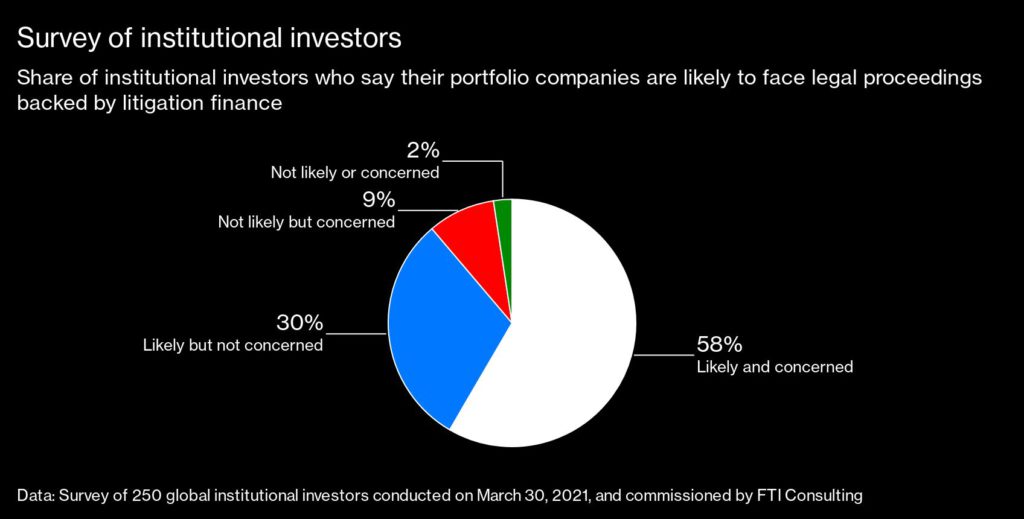Law firm behind $7 billion BHP suit gets more cash for ESG cases

A law firm bringing a $7 billion suit against BHP Group Ltd. over its role in the deadly collapse of a Brazilian mining dam has secured £100 million in extra funding to fight more such ESG cases.
PGMBM, which has also brought class-action type suits against other large corporates including Volkswagen AG and British Airways, has received the funds from investment firm North Wall Capital LLP, according to an emailed statement. North Wall had already extended £50 million in financing to the law firm, with the new money coming from a strategy that invests in ESG-focused legal assets.
“With this support we are looking forward to bringing home other cases,” PGMBM managing partner and chief executive officer Tom Goodhead said in the statement.
There’s likely to be plenty of opportunities, with climate-related suits in particular on the rise. These cases are becoming a crucial part of activists’ toolkit to hold companies and governments to account, with the North Wall funding showing the influence of ESG is now spreading to the relatively niche world of litigation funding.

North Wall has agreed a framework for the type of cases that the money can be used to help finance. Such litigation funding typically makes money by funds getting a multiple of their investment or a prescribed portion of the winnings from a particular suit.
North Wall’s loan-like investment is somewhat different, with a financing agreement that would see PGMBM able to use the money for certain cases, as long as they meet pre-agreed rules on what constitutes an ESG suit.
“It’s a loan to the law firm that they can use for general working capital purposes, secured by a much larger portfolio of claimants and cases,” Fabian Chrobog, founder and chief investment officer of North Wall, said in an interview.
In the BHP case, more than 200,000 claimants represented by PGMBM were last week granted the right to have a suit heard in the UK over the mining disaster in Brazil in 2015. The group is seeking at least $7 billion in damages in what would be one of the biggest class actions in the country’s history.
(By Lucca de Paoli, with assistance from Will Louch)
{{ commodity.name }}
{{ post.title }}
{{ post.date }}




2 Comments
Balter
I agree engineers and regulators need to be held accountable, and compensation is due. However, this predatory method of litigation actually hurts exploration and development in a world with eight billion people and rising. And I suspect the lawyers will end up with the lion’s share of “compensation” certainly on a per capita basis.
Walter Macleod
test